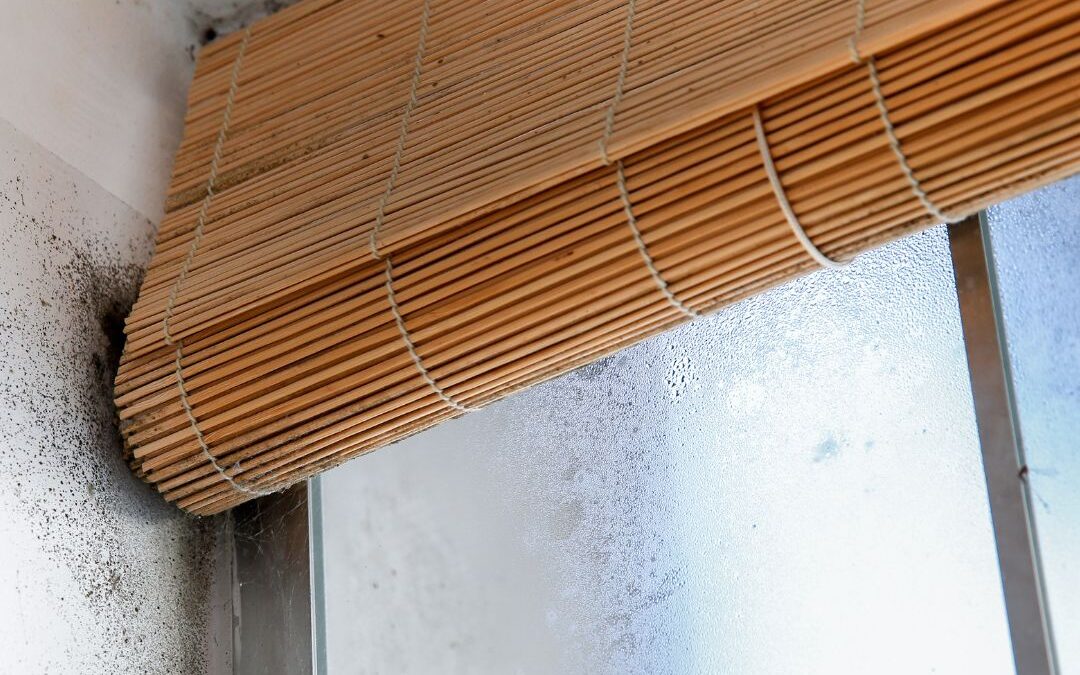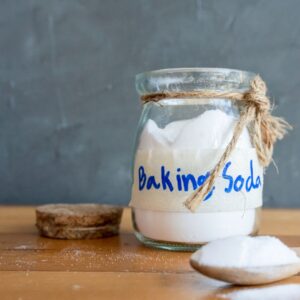Some people use mildew and mold interchangeably, but they’re not quite the same. So what is mildew? It’s actually a type of mold, specifically mold in its early stages. This means that it is still a fungus, and its spores do move through the air like other types of molds. Once the spores find a dark, damp area, they begin to replicate and grow. One of the biggest differences between mold and mildew, though, is that mildew doesn’t break the surface of whatever it has landed on. It’s superficial only, which does make cleaning mildew from around glass much easier.
While mildew isn’t as dangerous as types of molds can be, it’s still something you should clean up as soon as you can. It can become dangerous if you allow a large amount of mildew to grow in your home. Mildew can also cause some conditions, including asthma and allergies, to get worse over time as you breathe in more and more spores.
Cleaning mildew may not be that difficult, but there are still some things you should keep in mind, especially when you’re cleaning it up near glass. Here are some tips for cleaning mildew while also making certain to keep yourself safe and protect the surface you’re working on.
Why Mildew Forms Around Windows
Mildew is a type of mold that can form in humid or damp areas. It often appears as a black, white, or greenish-black powdery substance and can cause discoloration and a musty smell. Mildew often forms around windows due to window leaks, condensation, or high humidity. Leaking windows can allow moisture to seep into the surrounding area, providing the perfect environment for mildew to grow.
Condensation can also occur when warm, moist air hits a cold surface, such as a windowpane. This can happen if the temperature inside your home is warmer than the temperature outside, causing the air to cool and condense on the windows. High humidity levels can also lead to condensation and provide an environment where mildew can flourish. To prevent mildew from forming around your windows, make sure they are properly sealed and free of any leaks. If you live in an area with high humidity levels, use a dehumidifier to help keep the air inside your home dry. Wipe down your windows regularly with a clean, dry cloth to remove any condensation that has collected on them.
How to Identify Mildew on Glass
Mildew tends to start growing on glass when a lot of dirt or dust collects on it. This gives the spores a place to grip on to and grow into. Damp glass like that in the bathroom is also a very tempting surface for mildew. Once the spores make contact with the organic material in the dust and dirt, the humid environment helps speed up their growth. This is why you’ll often find mildew in cracks or corners that aren’t often cleaned well. The frames of sliding glass shower door and the edges of window frames are two places mildew can often be found.
Uncertain if it’s mold or mildew? Mold typically has a color to it. Most people have heard of black mold, one of the most dangerous types of mold. However, you can also find mold that is blue, green, and red. Mildew, on the other hand, is typically white. If you don’t see any color to the gunk on your glass, it’s likely mildew. If there’s any color to it, assume it’s mold and treat it more seriously, especially if it’s black.
Preparing to Clean Mildew
Before you start spraying chemicals or scrubbing on mildew or mold, you need to be prepared. You’ll want to wear rubber gloves when dealing with mildew and with any type of cleaner, especially clears that contain chemicals. You may also want to wear a face mask, especially if you’re cleaning a lot of mildew or suspect there may be some mold mixed in. Breathing in the spores from mildew and mold can damage your lungs, so you want to be certain you don’t inhale anything.
What Can You Use for Cleaning Mildew?
There are a number of different types of mildew cleaners out there. You can purchase a product from the store, or you can make your own DIY mildew cleaner. Both can be effective if used correctly.
If you’ve found some mildew growing on glass, your first thought may be to reach for your usual glass cleaner. While standard glass cleaner may appear to remove some of the mildew, it may not get all of it. This type of cleaner typically doesn’t include any type of chemicals designed to kill spores or fungus. It’s best to first use a specific mildew spray that is safe for use on glass first, then use your glass cleaner to get rid of any streaks and other marks on the glass. Do make certain that the cleaner is safe for glass and any other material, such as the wood of a window frame, before using it.
DIY Mildew Cleaners
If you’d rather make your own mildew cleaner, there are a few options. These DIY cleaners use common household products that you may already have on hand.
Hydrogen Peroxide
One common household product that works very well on mildew around window frames or in sliding shower door tracks is hydrogen peroxide. You can also use chlorine bleach if you don’t have hydrogen peroxide on hand because both contain the same chemicals that kill fungi.
You’ll want to be certain that the hydrogen peroxide you have is a three-percent solution. This is the typical strength available over the counter, so it’s likely any hydrogen peroxide you have at home or will find in the store is three percent. Pour it into a spray bottle and spray the surface of the glass evenly. Leave the solution on the glass window, door, or other surface for ten minutes. Wipe it off with a micro-fiber cloth or soft sponge. If some of the mildew isn’t coming off easily, you can apply some pressure. Just be gentle so you don’t damage the glass, frame, or other surface. Once you’re done, wipe the glass dry or use a glass cleaner to fully clean it.
Try a Baking Soda Paste
Another option is to mix up a paste of baking soda and water. Cover the mildew with this paste, then wipe it off with a towel or micro-fiber cloth. This should clean the dirty glass, plus the baking soda will help absorb any moisture still on the window. You’ll want to be sure you don’t mix in too much water. If you do, the paste will be too wet and may not work as it should.
One good reason to use a baking soda paste instead of hydrogen peroxide is that it’s fully non-toxic. If you have pets or children who may touch the glass, you won’t have to worry about them ingesting something that could be harmful. After you wipe off the paste, use your glass cleaner to remove any smudges that may be left.
Use Vinegar
Vinegar can kill over 80 percent of mildews, molds, and other fungi. It’s a type of acid, but it is very, very mild. You can use white distilled vinegar diluted with water as a spray to clean glass and other surfaces that have mildew on them. Simply spray the surface and wipe off the solution and mildew with a cloth. Because vinegar, like baking soda, is non-toxic, it’s great for cleaning glass shower doors and other places kids and pets could touch shortly after it’s used. Again, finish off the cleaning with your favorite glass cleaner.
How Replacing Your Windows with Simonton Windows Can Help Protect from Mildew
If your windows are starting to show signs of mold or mildew, it may be time to replace them. Simonton windows are designed to resist mold and mildew growth, helping to keep your home clean and healthy. Mold and mildew can cause a number of health problems, including respiratory problems, headaches, and skin irritation. In addition, mold and mildew can damage your home’s structure and finishes. Replacing your windows with Simonton windows can help prevent these problems by providing a barrier against mold and mildew growth. Simonton windows are made with a special vinyl formulation that resists the growth of mold and mildew. The vinyl is also UV resistant, helping to protect your home’s interior from fading. Simonton windows are available in a variety of styles and sizes to suit any home.
D&D Glassworks Can Help You with All of Your Window Needs
Have you decided that it’s time to put in new windows? If so, you want to be certain that those windows are high quality and are installed by the best. D&D Glassworks has partnered with Simonton Windows to provide outstanding windows at a very affordable cost. Whether you need to swap out a few windows or want to replace all of the windows in your home, we can help. We can also assist you in installing French doors, large bay windows, and more. Our Simonton replacement windows all come with Simonton’s amazing warranty, too.
Want to learn more? Contact D&D Glassworks today at 707-536-9183.





